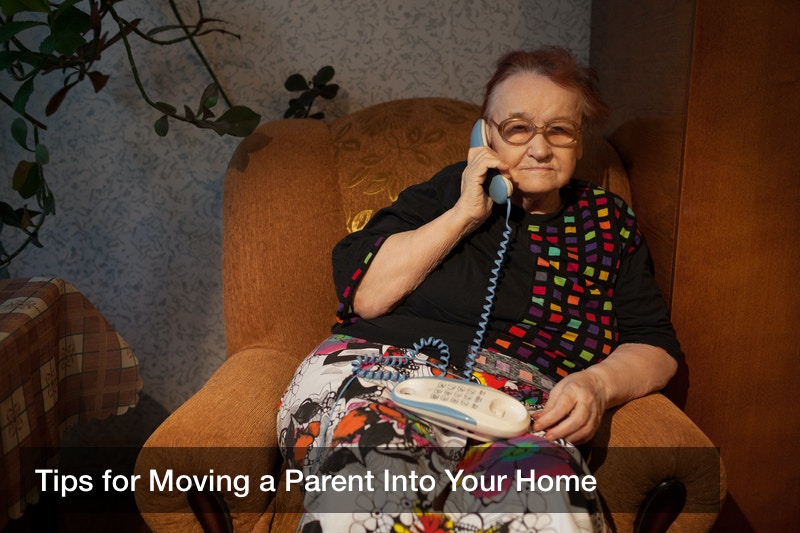
Moving can be extremely stressful for many people. It takes quite a bit of time and energy, and there is always the chance that something valuable can get lost, which in itself is very stressful. It can be a good idea sometimes to hire a moving company for help, especially if you are not able to move all of your things on your own. There is quite a bit to keep in mind when hiring a moving company, such as making sure that it is affordable and giving you what you need.
If you have not done a lot of moving, you may have a lot of questions about the process and companies that you can call. For example, you might wonder, which company is best to help with office moving? What are the average moving expenses when hiring a company? What is the average price for local movers? Who are the best home movers in my area? Who are the best movers for small moves? The answers to these questions will likely depend somewhat on where you live, so it is good to do some location-specific research. You might want to call movers in your area and see what they have to offer.
No one likes to think about their parents getting older and not being able to take care of themselves. However, many aging moms and dads get to the point when they can’t safely live alone. If your relatives are in that position, you may end up moving a parent into your home.
Although moving a parent into your home can seem like an overwhelming task, it doesn’t have to make you feel as if you’re not able to catch your breath. In fact, with a little bit of strategic planning, moving a parent into your home can be a relatively straightforward process.
To help you figure out how to make moving a parent into your home a less stressful and more rewarding experience, follow some best practice steps.
Find a Livable Space For Your Parent

The first thing you’ll need to figure out when moving a parent into your home is where your parent will live. For instance, do you have an extra bedroom that’s going to be big enough for your parent’s needs? Or would you rather renovate an area, such as the basement, into a master bedroom and suite for your mom or dad?
If you choose to revitalize and redo your home in a big way, or to invest in an addition to your house, you’ll need to make some phone calls. At the very start, call up some heating contractors. Don’t assume that an area like your basement is going to be comfortable for your parent. It might need to be fixed up with new ductwork and other items so that your parent will have a zoned, climate-controlled living space.
In addition to HVAC experts, be sure to look into plumbing services. A plumber working hand-in-hand with a contractor can help you create a bathroom out of a corner of your existing space, or perhaps even a larger walk-in closet. Your parent will appreciate having a bathroom to use that doesn’t need to be shared with anyone else.
Of course, if you’re moving a parent into your home, you’ll also want to redecorate. Be sure to talk with your parent about preferred interior design themes. You don’t want to make any assumptions only to have your parent dislike the rugs or wall coloring you choose. Keep your lines of communication open. The only exception to this rule would be if you are moving a parent into your home as a surprise. In that case, you may have reason to stay a little secretive about the ins and outs of your project.
Prepare Your Children for the Big Move
Your kids may love their grandparent. Most do. Nevertheless, they might not love living with your parent. Therefore, you’ll want to sit down with your kids before the move and explain all the new parameters.
This will be less of a problem if your youngsters are babies or toddlers. For older kids and teens, having a grandparent around 24/7 can seem like an intrusion. Laying a positive groundwork right away and answering any lingering questions they might have will help smooth the path for a successful integration between households.
Add Safety Measures to Your Home

Generally speaking, when you start to get serious about moving a parent into your home, your parent is probably starting to lose some mobility. Having mobility issues comes with getting older, but it isn’t something that you can’t do anything about in terms of safety. Truly, you can do a lot in your home to make it safer for your parent.
For instance, you may end up calling your local garage door services provider to talk about installing an outdoor garage door opener keypad. That way, your parent won’t have to remember to take a physical garage door opener outside in order to gain access to the garage.
Other safety measures you can take when moving a parent into your home involve fixing flooring and making necessary home improvement repairs. You’ll want to replace any fraying rugs, reinstall broken flooring tiles, and secure all carpeting to the floor underneath. As far as other tripping hazards are concerned, be sure that you’ve cleaned up all the clutter in walkways. Talk to your younger kids and teens about doing likewise. This will ensure that when you’re moving a parent into your home, you’re doing everything you can to reduce the risk of them taking a tumble.
Figure Out What to Do With Your Parent’s Furniture
It goes without saying that your parent will probably want to bring along some furniture when moving. Even if you don’t love the bedroom furniture, you can look the other way. But what happens if your parent insists that you include some furnishings you can’t stand into your living room, dining room, den, or other communal living space? Will you give in or stand your ground? And does any of it really matter that much?
At the end of the day, you’re still in charge of your home and your parent has to understand that. With that being said, you may want to make some concessions. For example, if your parent has a beloved lounge chair that doesn’t go with your decor, you may want to look the other way. Your parent’s comfort and happiness should take precedent sometimes over whether or not your house always looks Instagram image worthy.
Speak With a Therapist

Did you have a contentious relationship with your parent when you were younger? Prior to moving a parent into your home, it may be wise to sit down with a therapist. Why? You will want to make sure that you’ve explored any childhood issues with your parent before cohabitating again.
Don’t be surprised if you discover that you harbor some deep feelings that you’ve been pushing down. Use the time with your therapist to allow yourself to let go of all the problems haunting you. That way, you can start fresh with your parent on a positive note.
Familiarize Yourself With Your Parent’s Healthcare Services
Even if you and your parent speak openly about things like medical treatments and diagnoses, you may not know much about your parent’s specific healthcare plan or package. You’ll want to get familiar with any Medicare insurance coverage and private insurance coverage as soon as you can. Why? It will be extremely helpful, especially if your parent begins to show signs of forgetfulness, or you need to take over some of your parent’s healthcare management tasks.
Ask a lot of questions, including how much your parent already pays out of pocket for healthcare. This will help you be better informed so you can be an asset to your parent. The last thing you want to discover is that your parent can’t get hearing aid services or other essential services because a premium was missed.
Be In Regular Contact With Healthcare Professionals

Once you have a better understanding of your parent’s healthcare package and plan, you may want to start going to all your parent’s doctor appointments with him or her. You don’t have to act like you’re the parent, of course, but you should be ready to ask questions and write down answers.
For instance, let’s say that your parent’s doctor recommends physical therapy. You’ll want to make sure you understand the extent of the physical therapy as well as the therapist recommended by the physician. These are questions that your parent may not think to ask right away but will be relevant to your caregiving responsibilities.
In addition to paying attention during appointments, you should focus attention on other aspects of your parent’s healthcare. Namely, making sure that your parent gets enough exercise and eats properly each day. Following an exercise regimen will help keep your parent fitter, which is especially important for aging individuals. Though just about 20% of homes are within a half-mile distance of a green space, you don’t have to fret if your house isn’t near a park. Rather, sign your parent up for a membership at a local gym, community center, or YMCA where he or she can swim or walk regularly.
Determine How You’ll Deal With Your Parent’s Pet
Will you be moving a parent into your home along with a dog, cat, or other pet? These are things you’ll need to discuss up front. A new pet in your home can change your way of life considerably. If you already have pets, you’ll need to figure out how to make introductions smoothly. Your current pet might not appreciate having another creature come into the home. Talk to your veterinarian about the best ways to merge two pet-filled households seamlessly.
Additionally, you may need to find places for things, like a kitty tree or cat litter box. The sooner you come up with a plan on where to put everything your parent needs for a beloved pet, the less friction you’ll have when your parent’s dog or cat moves in.
Be Aware Of Your New Financial Obligations

When moving a parent into your home, you’ll incur new financial responsibilities and potentially obligations, too. Your parent may be on a fixed income. Will you ask your parent to contribute any money toward the household? Or will you pick up all the extra bills for utilities, groceries, and basic living expenses?
Make no mistake: This can be a tough discussion to have with your parent. Your parent will want to have some semblance of financial freedom. That’s to be expected. On the other hand, you shouldn’t feel like you can’t request any sort of monetary contribution from your parent if that’s possible.
It could be helpful to sit down with a financial accounting services professional before actually moving a parent into your home. Dialogue about your options as well as what moving a parent into your home will mean for you from a financial standpoint. If you’re renovating your home to bring your parent into your house, you’ll have to budget wisely. Otherwise, you could wind up overspending and getting yourself into a money jam.
Have a Discussion About the Kitchen
Your parent is probably accustomed to having a free reign around a kitchen. When you’re moving a parent into your home, you’re likely not going to want to relinquish a lot of cupboard or refrigerator space. On the other hand, you want to be fair to your parent, who is more than just a roommate.
Some families solve this issue by just blending everything together and having a “what’s mine is yours” attitude. Others choose to outfit their parent’s private living space with a kitchenette so the parent can eat meals alone when desired and have dedicated pantries, shelves, cookware, and appliances. Be open to any and all ways to make this work.
Prepare For the Future

Though it’s not exactly the most fun aspect of moving a parent into your home, you will need to plan for your parent’s future and what will happen once he or she has passed away. Your parent may already have talked with an estate law attorney. You need to find out the details, though. It’s tough when a parent passes away without a will or an estate plan, particularly if you have a number of siblings. You don’t want to end up in a family feud.
Another sticky issue can be the thought of arranging a funeral home service. Funerals can be extremely pricey. And you might not know your parent’s last wishes. Is a traditional funeral the way your mom or dad would want to be remembered? Or would your parent prefer something more private or unique? Have these conversations, tough as they are, during the whole process of moving a parent into your home. You’ll be relieved you did later on.
Remember to Take Care Of Yourself, Too
Moving a parent into your home can be a decidedly emotional time. Even if you’re looking forward to being able to turn the tables and take care of your parent, you may regret losing a sense of freedom. And some people in your household, such as your spouse or kids, might not like the changes that come with another adult in the home.
During this time of change, be sure to practice a little self-care. Get outside and exercise. Hang out with friends. Take a little time off of work for mental health days. Do whatever you need to do to make sure that you’re not feeling too frustrated or exasperated by all of the little things that come with moving a parent into your home.



